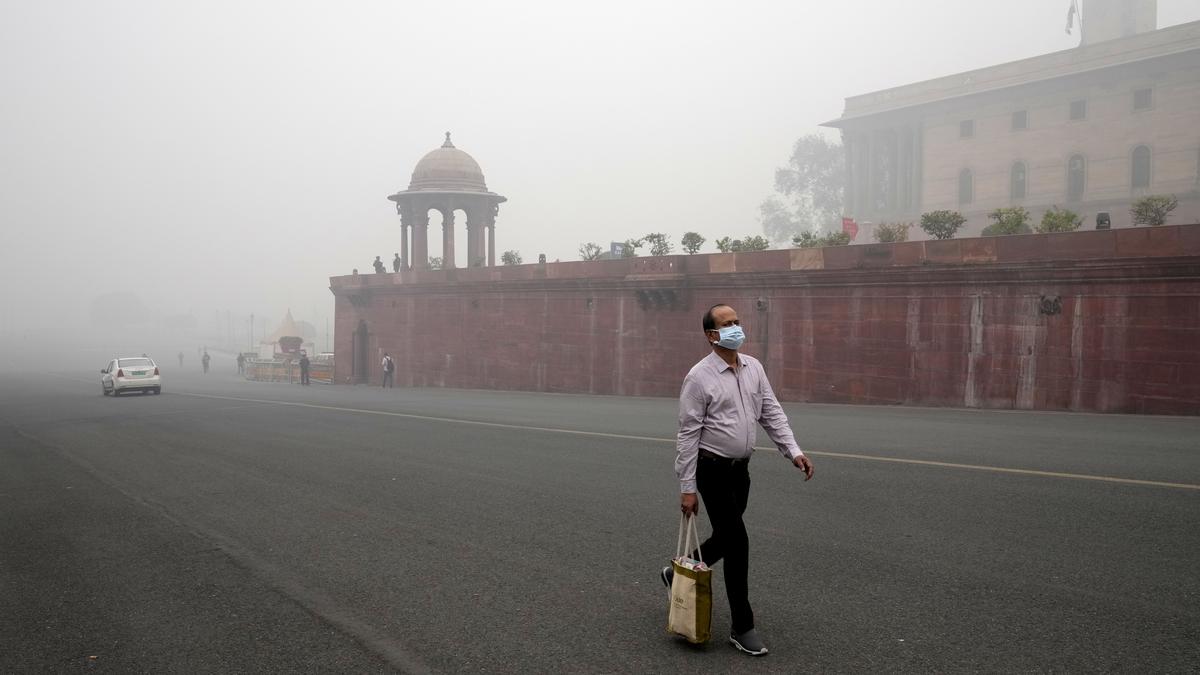India has pledged to reduce the health impacts of air pollution by 2040, aligning its actions with the National Clean Air Programme at the concluding session of the second World Health Organisation (WHO) conference on air pollution and health.
Speaking at the conference organised in Colombian city of Cartagena, Ministry of Health and Family Welfare’s Aakash Shrivastava said that the Indian government is “committed to supporting the health sector” and will “promote cleaner cooking energy, particularly for vulnerable populations.”
“The Ministry of Health and Family Welfare, India, is committed to supporting the health sector with actions in alignment with the National Clean Air Programme to reduce the health impacts of air pollution by 2040. We will strengthen air pollution and noncommunicable disease surveillance, promote cleaner cooking energy, particularly for vulnerable populations, and support clinicians in protecting at-risk patients,” Mr. Shrivastava said.
However, a report presented to the Rajya Sabha by the Parliamentary Standing Committee on Science and Technology, Environment, Forests, and Climate Change revealed that a substantial ₹858 crore allocated for pollution control in 2024-25 remains unutilised.
Also Read | National Clean Air Programme: Centre aims at 40% reduction in particulate matter by 2026
This budget represents 27.44% of the Indian Ministry’s revised annual allocation.
More than 50 countries, cities and organisations announced major commitments to tackle air pollution and safeguard health at the concluding session of the WHO’s global conference.
Over 700 participants including government representatives, U.N. agencies, civil society, scientists, and health societies, came together at the conference organised jointly with the government of Colombia by the WHO.
A shared goal to reduce the health impacts by 50% by 2040 was agreed upon to save millions of lives every year, the WHO said.
Also Read | Only seven countries met WHO air quality standards in 2024, data shows
Urging the participants to respond to a global call to action, WHO Director-General Tedros Adhanom Ghebreyesus said urgent actions are needed on all fronts to achieve clean air.
He emphasised the need for financial investment in sustainable solutions such as clean energy and sustainable transport, technical enforcement of WHO global air quality guidelines, and social commitment to protect the most vulnerable in the most polluted regions.
Air pollution claims more victims than violence itself and poisoning our air costs lives in silence, said President of Colombia Gustavo Petro, who was also present at the concluding session of the conference. “This conference reinforces our determination to implement policies for both the environment and the health of our people,” he added.
At the conference, Spain assured that they are “committed to achieve” a carbon-neutral health-care system by 2050 through emission reduction, multi-sectoral collaboration and promoting innovation.
Also Read | Majority of cities far from clean air target, says study
The United Kingdom and Northern Ireland reiterated their commitments to tackling air pollution by chairing the Forum for International Cooperation on Air Pollution (FICAP), setting health-based PM2.5 (fine particulate matter 2.5) targets, and publishing an Air Quality Strategy, which will review existing targets and consider how to increase public awareness on air pollution and address inequalities. The U.K. also committed to supporting the Africa Clean Air Programme.
Brazil pledged to strengthen inter-ministerial cooperation, advance key initiatives, establish the National Air Quality Policy, update air quality standards in line based on WHO guidelines as a Legal Framework, and monitor their impact on reducing pollution-related mortality.
China, on the other hand, stated that they are “committed to stronger air quality standards, smarter health protection systems, and enhanced international cooperation.”
“The country will continue its efforts to achieve national environmental and climate goals for 2030, 2050, and 2060,” Chinese government official said at the conference.
Also Read | After a health emergency, air pollution foretells an economic one
On behalf of the co-chairs of C40 cities, representing almost 100 of the world’s biggest cities, the Deputy Mayor of London Mete Coban assured supporting WHO’s 2040 target and roadmap.
Mr. Coban further called on other governments to expand investments in clean air solutions, strengthen air quality monitoring systems, and recognise cities as key partners in developing and implementing clean air strategies.
Meanwhile, the Clean Air Fund (CAF) stated they will allocate an additional $90 million over the next two years for climate and health efforts.
Responding to the commitments made at the concluding session of the conference, WHO Director Maria Neira said that the “WHO remains dedicated” to supporting countries in translating these commitments into concrete actions.
Published – March 30, 2025 09:32 am IST
